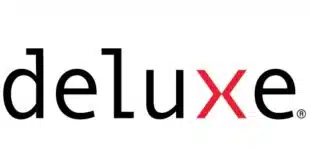Much ado is made about stopping phishing scams, database breaches, and related payment card fraud before it actually happens. But what about legitimate transactions that subsequently generate questionable or outright fraudulent chargebacks, leaving the merchant without revenue after having shipped the goods? A New York payments company called Chargeback File Merchant Services this month launched a service it claims could reduce such chargeback losses, especially in card-not-present transactions. The service, which goes by the Chargeback File name, lets the merchant get a read on a buyer's chargeback potential before approving or declining a transaction that seems legitimate at authorization time. “No one really knows what to do with 'friendly fraud,'” says Howard Schecter, director of business development. “Everything is going to look correct.” Chargeback File, a unit of New York City-based Regency Global Solutions Inc., claims to have records on 5 million of what it calls “negative instances” related to chargebacks at its outset. The records come from Chargeback File's 5-year-old corporate affiliate, preCharge Risk Management Solutions, a merchant-oriented chargeback-control and collections service that Schecter says has about 25,000 users worldwide. Though physical merchants can use the service, Chargeback File is largely targeting small and medium-sized online merchants that deal in card-not-present transactions. The service could be especially helpful in giving users an edge in accepting transactions coming through what Chargeback File calls third-party billers, such as PayPal, 2CheckOut, CCBill, or Google Checkout, according to Schecter. “Because of the way third-party billers work, the merchant doesn't see that much customer data,” he says. Merchants pay $29.95 per month for 500 search requests, or $4.95 per month for 25 search requests. Chargeback File is waiving its $25 set-up fee until March 1. Once enrolled, the merchant can enter on Chargeback File's Web site any data point that it has about a would-be buyer, such as credit card number, domain name, e-mail address, first and last name, Internet Protocol address, telephone number, or user name. If Chargeback File's database has a negative file that matches the data point, it will give the merchant confirmation. The system also alerts merchants to whether the buyer has committed fraud on multiple Web sites. “We're not saying we're the end-all, be-all,” says Schecter. “It gives everyone an extra eyeball.” Chargeback File also enables merchants to report chargebacks to it, making the service more useful as it grows. As an incentive to report, Chargeback File will connect merchants with preCharge's collections service, which Schecter says has the scale to handle even very small chargeback amounts. “Chargeback File merchants will only be charged a collections fee in the event that the chargeback is collected,” he says. Schecter says the chargeback and dispute-handling systems of third-party billers, especially PayPal and its parent eBay Inc., “usually rule in favor of the buyer.” A PayPal spokesperson declines comment.
Check Also
Zoho Launches Zoho Payments In the U.S. Market
Zoho Corp., an Indian multinational software company, is launching Zoho Payments in the United States. …





